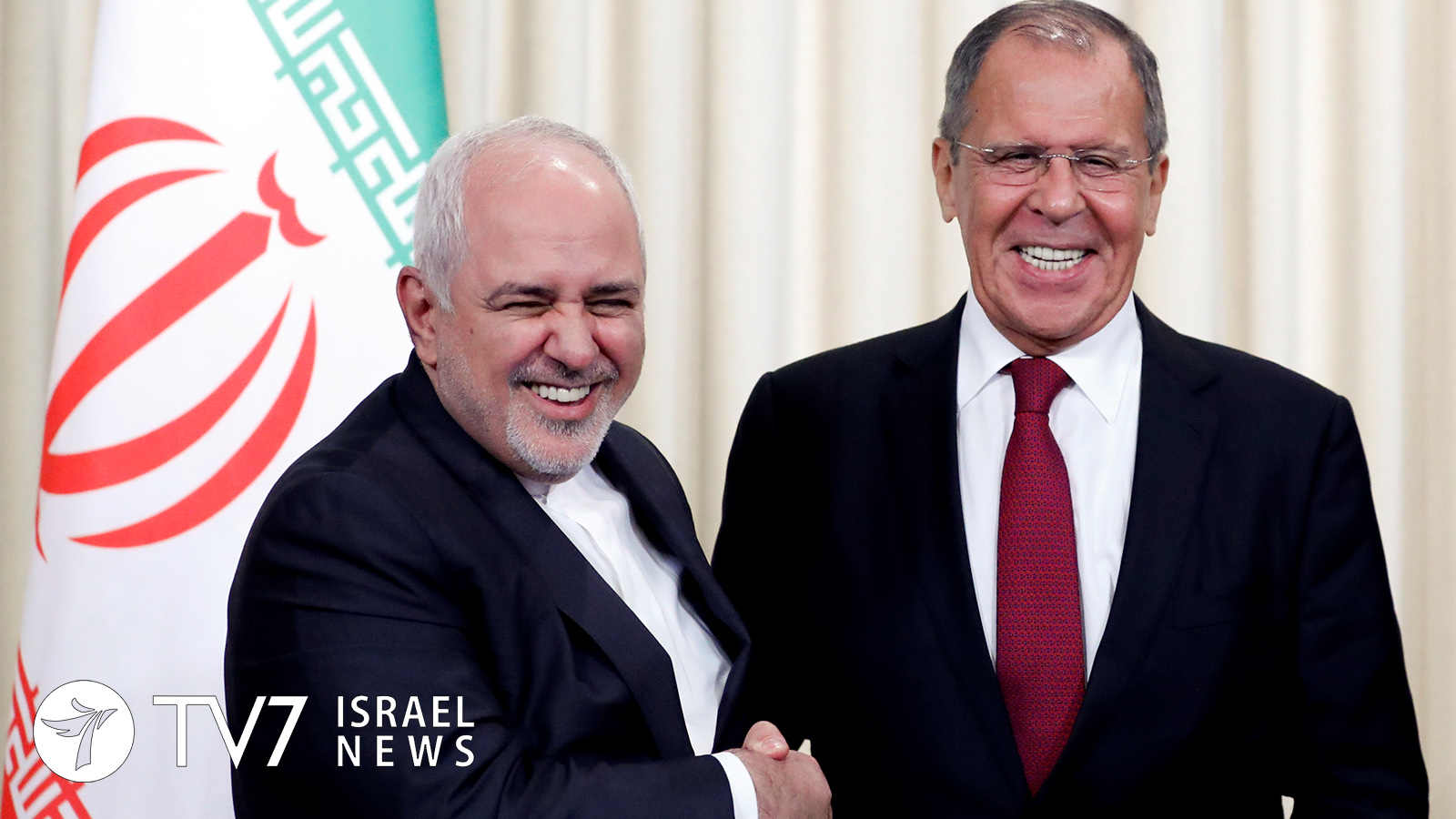Russian Foreign Minister Sergei Lavrov revealed that his nation and the Islamic Republic of Iran agreed on a series of initiatives, intent on protecting their joint economic projects. According to the Russian top diplomat, who spoke alongside his visiting Iranian counterpart Mohammad Javad Zarif, ‘the measures also aim “to gain independence from payments in U.S. dollars.” According to Lavrov, “Both Russia and Iran face unlawful one-sided restrictions imposed by the United States of America. ” He added that such limitations “are aimed at blocking the foreign economic ties of Republic of Iran. We have agreed to make further efforts and take more measures to protect economic projects with Iran and to gain independence from payments in dollars.”
Iran’s Foreign Minister seized the opportunity to welcome a proposal by Moscow for ensuring security in the Persian Gulf – while emphasizing an aligned Iranian-Russian position on vehemently rejecting any Western presence in the strategic strait of Hormuz, which Tehran claims ‘will exacerbate tensions.’ Zarif said, “Our position is very close to Russia when it comes to the safety in the Gulf. I think it can be guaranteed only through cooperation, not by imposing restrictions on the coastal states.”
The comments by the Iranian Foreign Minister on maritime navigation came in response to discussions that were held by his European Union counterparts in Helsinki last Friday, regarding the importance of assuring freedom of maritime navigation in the strategic gulf, especially after the Islamic Revolutionary Guards seized a British oil tanker under – what London defined as ‘false pretenses.’ Finnish Foreign Minister Pekka Haavisto stressed, “This is very important that the dialogue is ongoing but of course we expressed, all of us, our very big concern about the status of the Stena Impero vessel, the captured vessel in the Strait of Hormuz.” Tomas Petricek, the Foreign Minister of the Czech Republic concurred, remarking that “We discussed the situation in the Persian Gulf. Indeed, the EU would like to contribute to decreasing the tensions in the region. What we want today is to safeguard the freedom of navigation and we are discussing still the options for us. ” “We will continue to look at how to guarantee freedom of navigation and continue to work with Iran for the proper implementation of the nuclear agreement.” Belgium’s Foreign Minister Didier Reynders further remarked, “We are trying to avoid any escalation in the region. We will continue to look at how to guarantee freedom of navigation and continue to work with Iran for the proper implementation of the nuclear agreement.”
In an effort to pressure Europe to do more for the Islamic Republic, Minister Zarif told Minister Lavrov during their meeting in Moscow that in contrast to Russia and China, the European Union does not fulfill its obligations. According to Zarif, his nation “consider(s) Russia and China as partners that have helped us in JCPOA, have held strong positions and who contributed to the continued survival of the JCPOA. Unfortunately, we have not seen the same approach from the Europeans. They have not been able or willing to take the necessary action in order to fulfil their obligations at the JCPOA.”
Minister Zarif further threatened Europe, that unless it makes concrete steps – the Islamic Republic will further reduce its commitments under the Joint Comprehensive Plan of Action by this Thursday, September 5th.
In related developments, France has reportedly offered to extend a $15 billion letter of credit to Iran in exchange for compliance with the 2015 nuclear accord. According to the New York Times, which cited a U.S. official and Iranian reports, the proposed sum was geared toward salvaging the controversial agreement following decisions by U.S. President Donald Trump to withdraw from it last year, and reimpose crippling international sanctions on Tehran.
